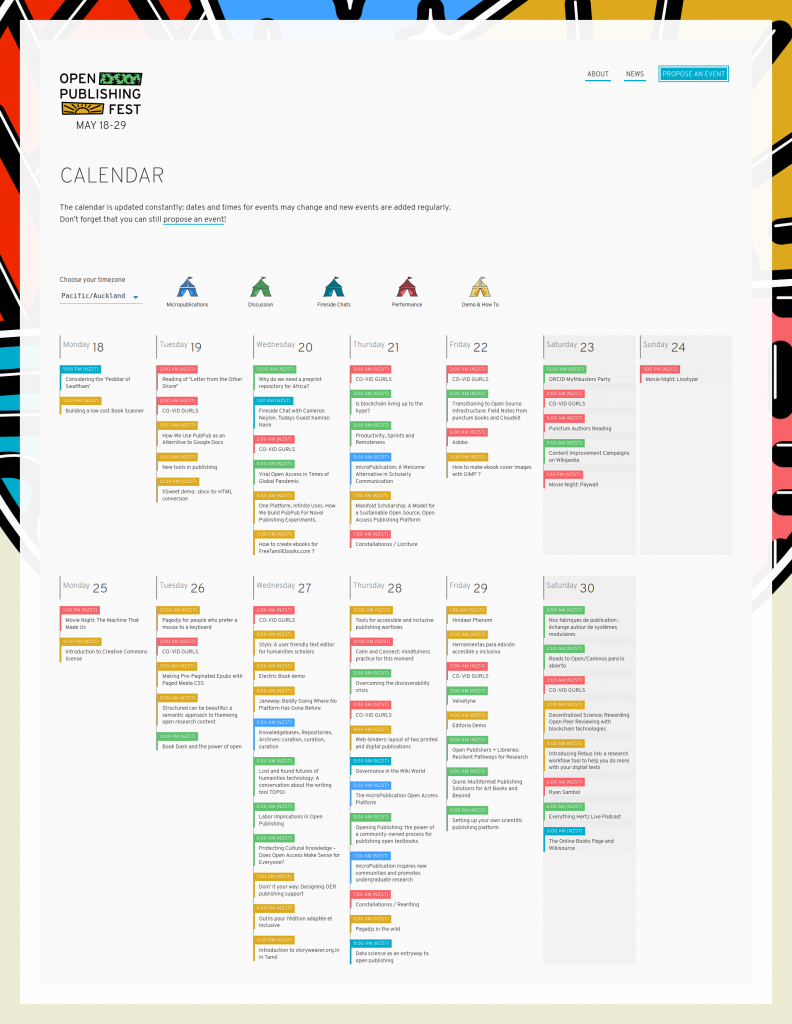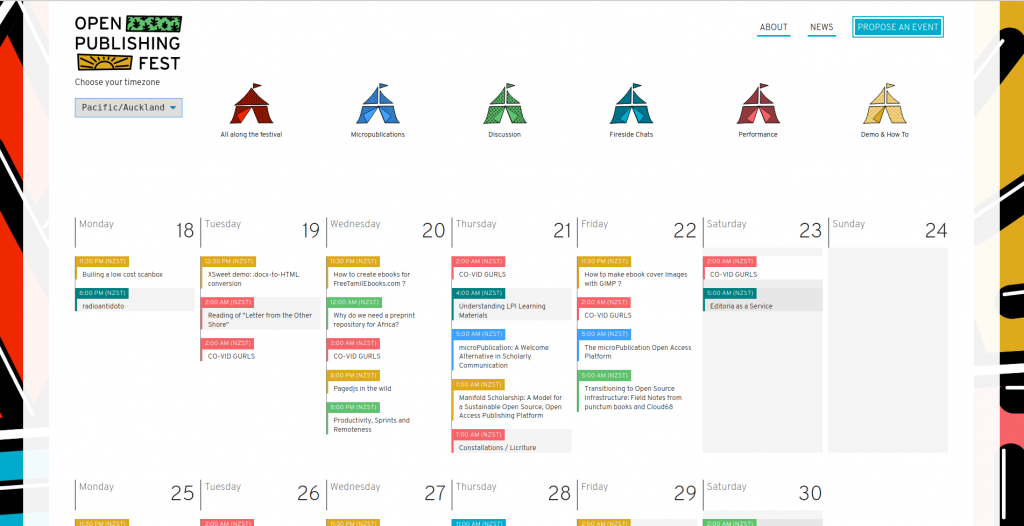the draft concept paper I put together for the fest before we started. Linked below and I’ve included the full text below also just in case..the linked version is prettier tho..
https://openpublishingfest.org/paper.html
————–
- People are fatigued with video conferencing
- People are up and down, down and out
- We need to switch up the format. Let’s create a festival that is fun and have a “drop in, drop out” feel to it.
- Cheer folks up, celebrate open.
Concept
A festival, not a conference. Takes place over two weeks in May (May 18-29). We take the idea (but not literally) of “tents” as venues within a festival. There are many tents and each is curated around a certain theme. These tents have rolling events, sometimes gaps, sometimes gapless. Many events occur across all tents simultaneously. The tents relate to themes — Open Content, Open Source Software, and Open Publishing Models. There may also be a “main stage”.
All events are curated by thematic teams of people we trust. Each event is online. The festival website maintains the program of events. The central website is going to be very much like a festival programme, pointing to various events on each day you may wish to browse.
Content Themes
Open Content, Open Source Software, and Open Publishing Models are the themes of the Open Publishing Awards. We may also have a “main stage”.
Within this we will invite a number of trusted people collaboratively curate these threads. We have so far hooked initial interest from Dan Rudmann (Punctum Books), Christine Fruin (Atla), Chris Hartgerink (Liberate Science), and John Chodacki (FORCE11/California Digital Library) as well as a few others.
The content within these 3 themes will cover a lot of scholarly communications projects and materials but it won’t be exclusively Schol Comms. We may want to specifically branch into several areas including the open publishing of blueprints for emergency COVID-19 hardware — and the issues around this eg https:
Event Formats
Each event must take the form of one of the following:
- panel discussion
- fire side chat
- demo
In addition we will have an opening and closing event (format tbd).
Streaming Formats + Tech
We will place no requirements on streaming tech, folks can use whatever they like, we will place an emphasis on giving us the recordings immediately after so we can keep an archive online for all events in almost-realtime.
Stand up a Mattermost instance. Low-fi (techwise) but good looking WordPress site, easy to update.
Scheduling
We will not require live events to be co-ordinated with timezones or timeslots. People that are contributing can choose a time that suits them as long as it is scheduled on the site before the festival starts. The site will look after converting timezones in the listings for display.
The Spice
Events to be augmented by performances.
Examples:
Puppeteers such as Hannah Clarke and Jon Coddington: https:
Jenny Ritchie and Immogen Stone, aerialists: https:
TimesUp and Foam: http:
Additional Ideas
Social Events, Kids Events, Festival Radio… tbd
Coko
Coko will be in the background for this. We are the founding org but we want to promote everyone in this space even our “competition”. We did this very well with the Open Publishing Awards (https:
Budget
Coko will cover initial costs.
Summary
This event will not only bring a lot of attention to some amazing open publishing projects but also get people engaged and help with both the ‘zoom fatigue’ and stir craziness we are all feeling. The end result will be a fun festival you can browse (either synchronously or asynchronously via the archive), and drop in and out of as you have time / attention.
Contact
adam@coko.foundation or chat at https:

